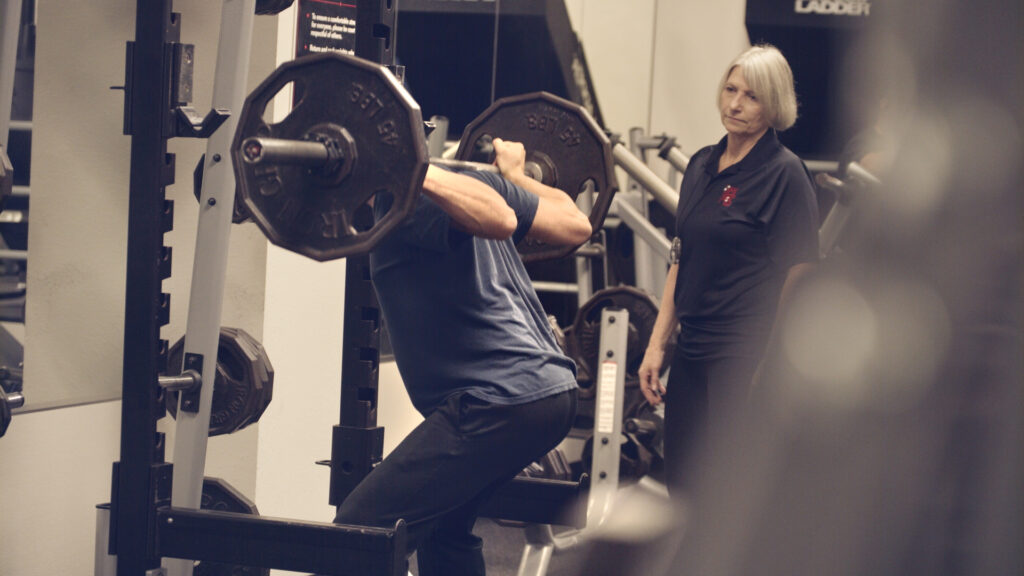Aerobic and Resistance Training Keeps You Young!!

The benefits of aerobic and resistance training in both recreational and competitive athletes are well documented. Sports programs and athletes have embraced these techniques as pillars of improved sporting abilities and good health maintenance. I know in my program I focus on several modalities that provide resistance training and incorporate low impact Aerobic or Cardio exercises. Having a balanced program in your daily routine will help you increase your longevity and quality of life as you age and essentially keeps you young.
A properly curated and executed training regimen that aligns properly with an athletes goals and objectives will definitely increase strength and power while also improving performance. Such a program also has been shown to reduce musculoskeletal injuries, decrease the severity of injury occurrences, and improve the general health of bones, muscle tissue, and other connective tissue.
The physical changes that occur during aerobic and resistance training improve the protection against injury for those who participate in such intensive sport and activity.
A discussion of the role that aerobic and resistance training plays in a sports medicine context follows. More specifically, we’ll dive a little deeper into a broad overview of each training methodology, outline their respective benefits, and even summarize potential risk factors associated.
What is Aerobic Training?
Otherwise referred to as “cardio”, or cardiovascular exercise, aerobic training is a training methodology that requires the use of oxygen in order to meet and maintain energy demands. Examples of aerobic training include lower intensity, steady-state activities such as endurance walking, running, biking, swimming, and sports such as basketball, soccer, hockey, and track & field.
Aerobic exercise is extremely effective and efficient at improving heart rate, blood pressure, and cholesterol levels, boosting bone density, strength, mobility, and reducing the risk of injury, disease, and other health-related conditions. Aerobic fitness also improves the body’s ability to absorb oxygen and delay fatigue. All of these positive results can be attributed to the increased blood flow that occurs with aerobic training.

What is Resistance Training?
Resistance training is a training methodology that involves strength exercises via machines, bodyweight, free weights, resistance bands, and any other modality that applies resistance to a given movement.
The intention of resistance training is to improve one’s ability to carry load and exert force; however, research suggests that resistance training accomplishes much more than that, especially in the context of sports medicine, performance training, and physical rehab. In addition, muscles that are accustomed to receiving regular resistance training will often grow in size and become resistant to fatigue during exercise.
Benefits of Aerobic & Resistance Training
The benefits of aerobic and resistance training in a sports medicine context are vast, not to mention its benefits to the general public unrelated to sport. Maintaining a program of both can yield surprising results for an athlete, especially in these modern times where the level of competition has increased substantially. By incorporating cardio into your workout regimen, you’re giving your body time to recover after an intense weight session or long run with weights.
Whether it’s implemented as a performance enhancement, preventative protocol, or injury rehabilitation program, aerobic and resistance training is incredibly advantageous for athletes of all kinds. Yet, it’s essential that such a program is curated, executed, and monitored correctly and under professional supervision.
The following are several beneficial functions that aerobic and resistance training play:
- Promotes Muscle Growth & Strength
- Reverses Muscle Loss
- Increases Athletic Performance
- Boosts Explosiveness & Power
- Promotes Mobility & Flexibility
- Improves Heart Health
- Enhances Cardiovascular Ability
- Reduces Body Fat
- Increases Bone Density
- Reduces Risk of Health Conditions (Diabetes, Hypertension, Cancers, Osteoporosis)
- Improves Health Indicators (blood pressure, resting heart rate, metabolism)
- Boosts Well-Being
- Injury Prevention
While not all of these benefits are related to sports medicine and athletics, it’s worth noting to emphasize its role and importance for general health, longevity, performance, and other health and fitness factors.
Several of these benefits indirectly correlate to sports and athletics, such as well-being and motivation in association with performance and the reduction of risk for various health conditions associated with physical injury and capability.
Nevertheless, a well-planned and properly monitored aerobic or resistance training regimen can help prevent sports-related injuries and improve overall performance.

Potential Risks Associated with Aerobic & Resistance Training
The risks associated with aerobic and resistance training primarily pertain to youth athletes; however, other injuries can be classified as accidental, even in the most elite of athletes.
Some issues that can lead to undesirable aerobic and resistance training results include poor, unqualified instruction, inefficient technique, inappropriate training loads, and overtraining. These issues are problematic with any competitive sport, whether weightlifting, sprinting, track & field, gymnastics, or football. Such bad technique or training can lead to soft tissue injuries, lower back pain, and growth plate injuries, among others.
Final Thoughts
The evidence supporting aerobic and resistance training benefits on physical health, injury reduction, sports performance, and other sports medicine modalities is clear.
While other preventative protocols are effective in sports medicine and injury reduction, aerobic and resistance training implemented in the correct environments are beneficial both for the recreational participant and competitive athlete alike.
However, it’s important not only to receive medical clearance prior to engaging in such activity but to find a professional who specializes in supervising effective rehabilitation and strength programs.
Kathy Denise Hicks is a Personal Trainer/Corrective Exercise Specialist, and author. She currently inspires clients to incorporate habits which alleviate joint and muscular pain, increase energy, and attain their ideal weight. Kathy’s mantra “No Pain, More Gain” is truly exemplified through her coaching technique and expertise.
I am ready to help you if you want to get to the next level in your health journey. Give my Free 14 Day Workout a try and you will notice the difference. Cardio/Strength, Pilates, Body Rolling and Brain Health. Full body attention to create a fit life.




